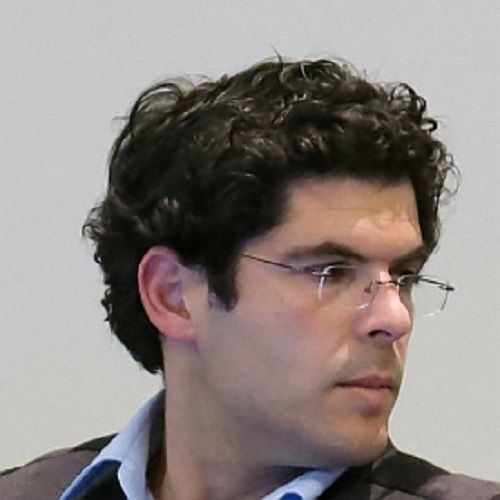Dr. Athos Agapiou has been an Assistant Professor in the Department of Civil Engineering and Geomatics at the Cyprus University of Technology since 2021. He holds the chair in "Geoinformatics and Earth Observation" and coordinates the research activities of the EOCult (Earth Observation Cultural Heritage Lab).
Dr. Agapiou received his diploma from the School of Rural and Surveying Engineering at the National Technical University of Athens (2005). In 2007, he completed his MSc in Geoinformatics at the same institution, and in 2010, he earned an MA from the Department of History and Archaeology at the University of Cyprus. In 2013, he was awarded a PhD in the field of archaeological remote sensing.
During his studies, he received awards and scholarships from the Alexander S. Onassis Public Benefit Foundation, the State Scholarships Foundation of Greece, and the Technical Chamber of Greece. He has actively participated in numerous research projects at both European and regional levels (Horizon Europe, H2020, JPI, Interreg), as well as in national projects funded by the Research and Innovation Foundation (RIF).
Since 2022, Dr. Agapiou has been the Deputy Director of the UNESCO Chair in "Digital Cultural Heritage." The Chair promotes collaboration with national and international partners, contributing to advancements in the field of digital cultural heritage, with the aim of safeguarding and enhancing cultural heritage.
Since 2021, he has served as Cyprus's National Representative for the Horizon Europe program (Cluster 4 – "Digital, Industry and Space"). From 2017 to 2021, he was Cyprus's National Representative for the "Space" program under the Horizon 2020 framework. Furthermore, between 2018 and 2021, he was the Chair of the Board of Directors of the "Applications of Computer Science and Quantitative Methods in Archaeology" organization (CAA-GR). From 2019 to 2021, he served as an evaluator for NASA's Postdoctoral Program and continues to act as a scientific reviewer for various national and European research programs.
Since 2022, Dr. Agapiou has been the scientific coordinator of the European project "Civil Engineering and Geomatics Innovative Research on Heritage" (ENGINEER), funded by Horizon Europe. The ENGINEER project focuses on innovative research fields such as documentation, digitization, visualization, data exchange, structural analysis, seismic assessment, and conservation engineering of cultural heritage, including monuments and landscapes. He is also the coordinator of the CONNECTING strategic research infrastructure.
For his overall research contributions, he was awarded the "Young Researcher" award in 2018 by the Research Promotion Foundation (RPF). His name is consistently included in the annual reports of Stanford University among the top 2% of researchers worldwide in his field. In 2023, he received the 1st Young Scientist Award from the Young Scientist Innovation Network (YSIN) of the International Society for Digital Earth (ISDE) for his innovative research ideas that enhance society and the environment.
A recent global bibliometric study (2024), published in Heritage Science (Springer), ranked him among the top three researchers worldwide in the applications of Geoinformatics for cultural heritage. In a similar study (2022), he was recognized as one of the top ten scientists globally with significant influence in the field of fourth industrial revolution applications for cultural heritage.
Since 2024, Dr. Agapiou has been a member of the Young Academy of Europe, following a unanimous decision by the Academy's Selection Committee, recognizing his substantial contributions to science and active participation in research activities.
His scientific interests include Geoinformatics and Earth Observation, focusing on archaeological research and cultural heritage landscapes. Further details about his scientific publications can be found on Scopus, Web of Science, Google Scholar and Research Gate.

